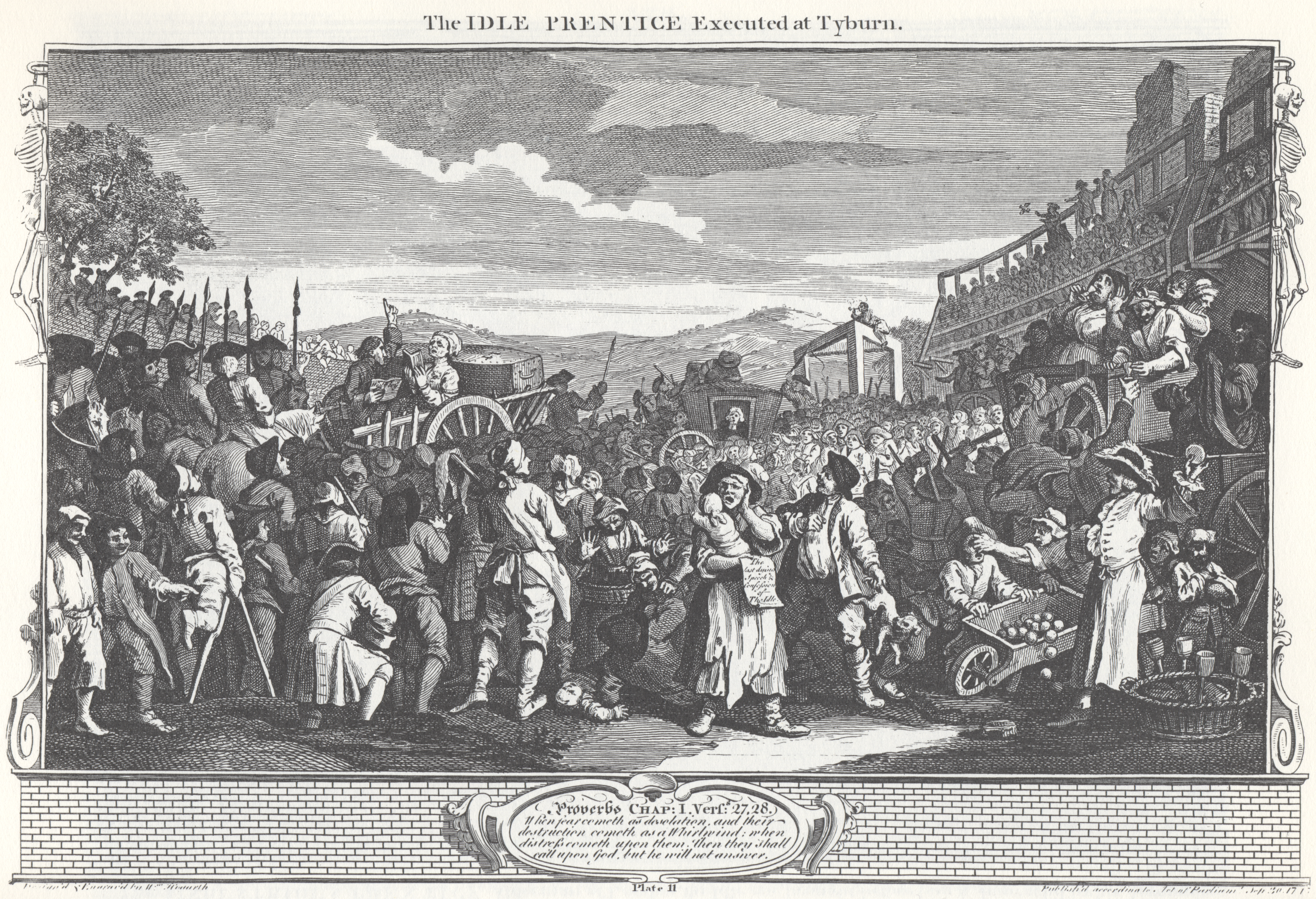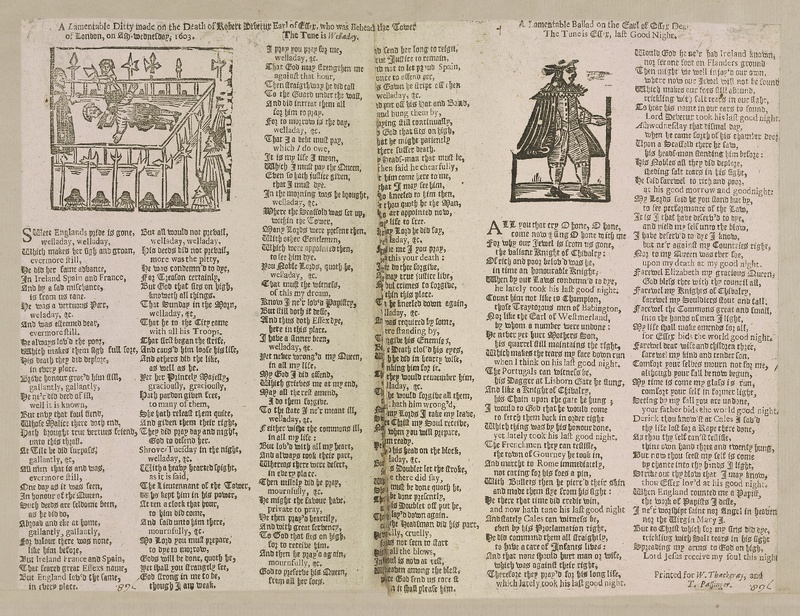A Lamentable Ditty made on the Death of Robert Deverux Earl of Essex, who was Beheaded in the Tower of London, on Ash-Wednesday, 1603.
- Ballad Title
- A Lamentable Ditty made on the Death of Robert Deverux Earl of Essex, who was Beheaded in the Tower of London, on Ash-Wednesday, 1603.
- Indicated Tune
- Welladay
- Ballad Location
- Magdalene College - Pepys Library, Pepys Ballds 2.162-3
- Digital Source
- English Broadside Ballad Archive (EBBA) 20781
- Background Information
- Execution of Robert Deverux Earl of Essex by beheading at the Tower of London
- Event Date
- 1603
- Event Location
- Tower of London, England
- Printing Date
- [1686-1688]
- Printing Location
- London, England
- Printer Name
- W. Thackeray and T. Passinger
- First Line
- Sweet Englands pride is gone
- Crime
- Treason
- Gender of Accused
- Male
- Method of Punishment
- Beheading
- Category
- Crime and Punishment Ballads
- Sub-Category
-
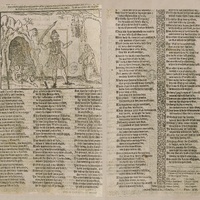 Execution Ballads
Execution Ballads
- Language
-
 English Ballads
English Ballads
- Related Ballads
-
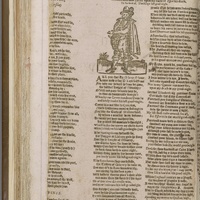 A lamentable new Ballad upon the Earle of Essex his death.
A lamentable new Ballad upon the Earle of Essex his death.
-
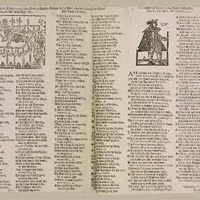 A Lamentable Ballad on the Earl of Essex Death
A Lamentable Ballad on the Earl of Essex Death
- Notes
- Printed on same sheet with EBBA 32618, entitled "A Lamentable Ballad on the Earl of Essex Death"
- Other Media
-
 Transcript: A Lamentable Ditty made on the Death of Robert Deverux Earl of Essex
Transcript: A Lamentable Ditty made on the Death of Robert Deverux Earl of Essex
TRANSCRIPT:
A Lamentable Ditty made on the Death of Robert Deverux Earl of Essex, who was Beheaded ithe Tower
of London, on Ash-wednesday, 1603. The Tune is Welladay.
SWeet Englands pride is gone,
welladay, welladay,
Which makes her sigh and groan,
evermore still,
He did her fame advance,
In Ireland Spain and France,
And by a sad mischance,
is from us tane.
He was a vertuous Peer,
weladay, etc.
And was esteemed dear,
evermore still.
He always lov'd the poor,
Which makes them sigh full sore,
His death they did deplore,
in every place.
Brave honour grac'd him still,
gallantly, gallantly,
He ne'r did deed of ill,
well it is known,
But envy that foul fiend,
Whose Malice there doth end,
Hath brought true vertues friend,
unto this thrall.
At Tilt he did surpass,
gallantly, etc,
All men that is and was,
evermore still,
One day as it was seen,
In honour of the Queen,
Such deeds are seldome been,
as he did do,
Abroad and eke at home,
gallantly, gallantly,
For valour there was none,
like him before,
But Ireland France and Spain,
That feared great Essexs name,
But England lov'd the same,
in every place.
But all would not prevail,
welladay, welladay,
His deeds did not prevail,
more was the pitty,
He was condemn'd to dye,
For Treason certainly,
But God that sits on high,
knoweth all things.
That Sunday in the Morn,
welladay, etc,
That he to the City came
with all his Troops.
That first began the strife,
And caus'd him loose his life,
And others did the like,
as well as he.
Yet her Princely Majesty,
graciously, graciously,
Hath pardon given free,
to many of them,
She hath releast them quite,
And given them their right,
They did pray day and night,
God to defend her.
Shrove-Tuesday in the night,
welladay, etc.
With a heavy hearted spight,
as it is said,
The Lieutennant of the Tower,
Who kept him in his power,
At ten a clock that hour,
to him did come,
And said unto him there,
mournfully, etc.
Mo Lord you must prepare,
to dye to morrow,
Gods will be done, quoth he,
Yet shall you strangely see,
God strong in me to be,
though I am weak.
I pray you pray for me,
welladay, etc.
That God may strengthen me
against that hour,
Then straightway he did call
To the Guard under the wall,
And did intreat them all
for him to pray.
For to morrow is the day,
welladay, etc.
That I a debt must pay,
which I do owe,
It is my life I mean,
Which I must pay the Queen,
Even so hath justice given,
that I must dye.
In the morning was he brought,
welladay, etc.
Where the Scaffold was set up,
within the Tower,
Many Lords were present then,
With other Gentlemen,
Which were appointed then,
to see him dye.
You Noble Lords, quoth he,
welladay, etc.
That must the witness,
of this my dream,
Know I ne'r lov'd Papistry,
But still doth it defie,
And thus doth Essex dye,
here in this place.
I have a sinner been,
welladay, etc.
Yet never wrong'd my Queen,
in all my life,
My God I did offend,
Which grieves me at my end,
May all the rest amend,
I do them forgive.
To the state I ne'r meant ill,
welladay, etc.
Neither wisht the commons ill,
in all my life:
But lov'd with all my heart,
And always took their part,
Whereas there were desert,
in every place.
Then mildly did he pray,
mournfully, etc.
He might the favour have,
private to pray,
He then pray'd heartily,
And with great fervency,
To God that sits on high,
for to receive him.
And then he pray'd again,
mournfully, etc.
God to preserve his Queen,
from all her foes.
And send her long to reign,
True Justice to remain,
And not to let proud Spain,
once to offend her,
His Gown be stript off then
welladay, etc.
And put off his Hat and Band,
and hung them by,
Praying still continually,
To God that sits on high,
That he might patiently
there suffer death.
My Heads-man that must be,
then said he chearfully,
Let him come here to me,
that I may see him,
Who kneeled to him then,
Art thou quoth he the Man,
Who art appointed now,
my life to free.
Yes my Lord he did say,
we[l]laday, etc.
Forgive me I you pray,
for this your death:
I here do thee forgive,
And may true justice live,
No foul crimes to forgive,
within this place.
Th[en] he kneeled down again,
welladay, etc.
And was required by some,
there standing by,
To forgive his Enemies,
Before Death clos'd his eyes,
Which he did in hearty wise,
thanking him for it.
That they would remember him,
welladay, etc.
That he would forgive all them,
that hath him wrong'd,
Now my Lords I take my leave,
Sweet Christ my Soul receive,
Now when you will prepare,
I am ready.
He laid his head on the block,
we[l]laday, etc.
But [hi]s Doublet let the stroke,
s[om]e there did say,
What must be done quoth he,
Sha[ll] be done presently,
There [h]is Doublet off put he,
a[nd] lay'd down again.
Th[en] the Headsman did his part,
cruelly, cruelly,
He was not seen to start
for all the blows,
His soul is now at rest,
In Heaven among the blest,
W[he]re God send us to rest
w[he]n it shall please him,
Printed for W. Thackeray, and
T. Passinger.
